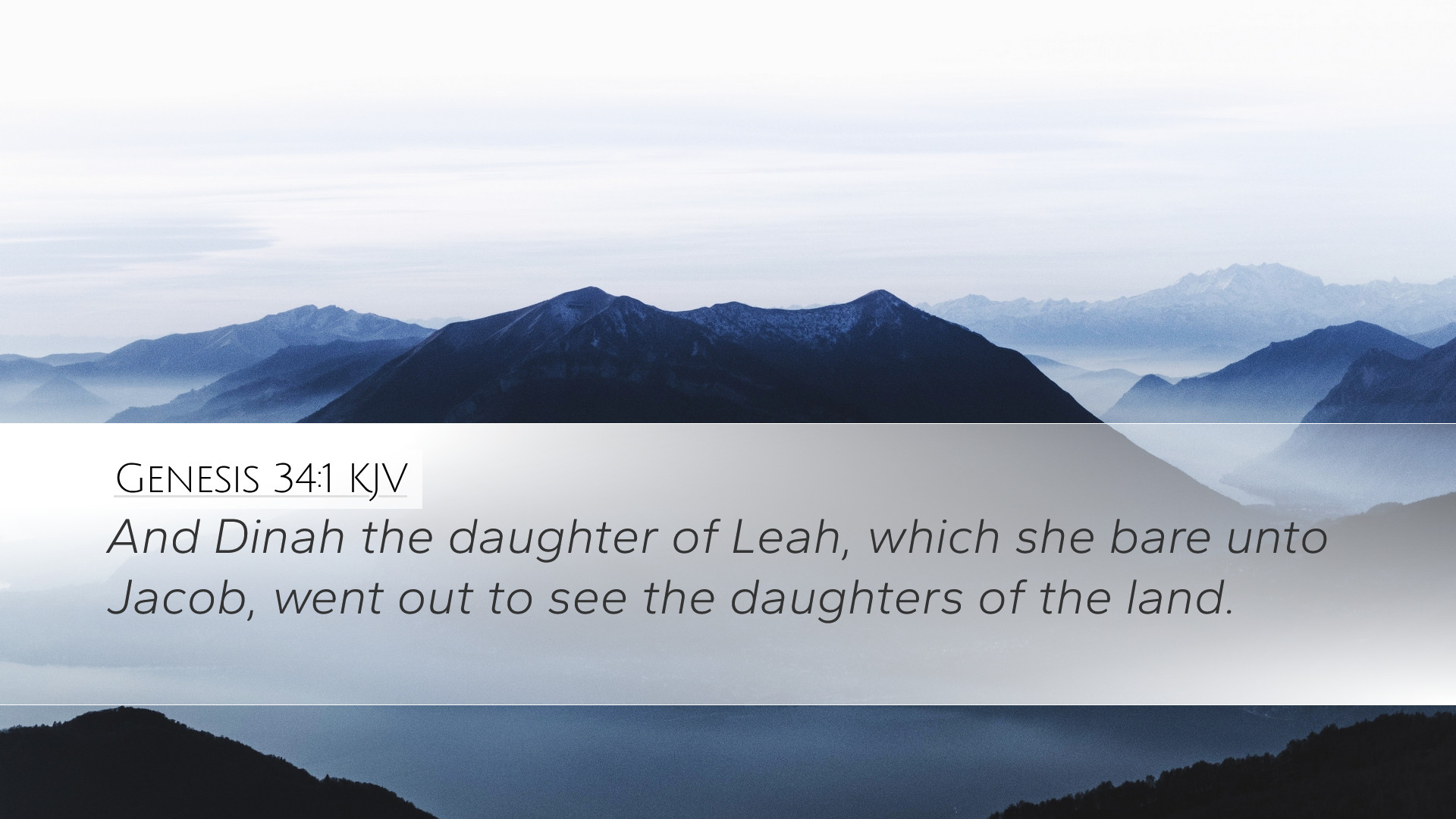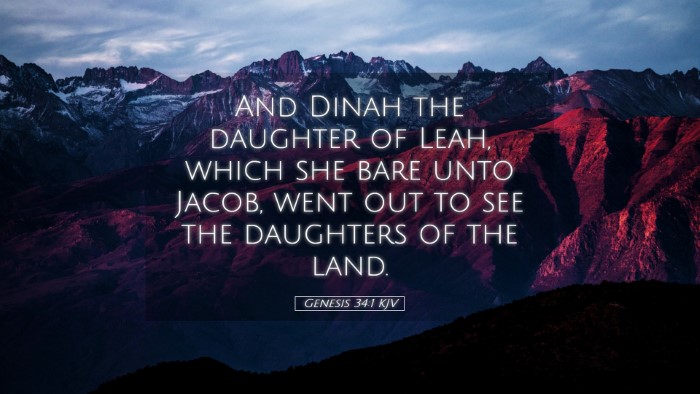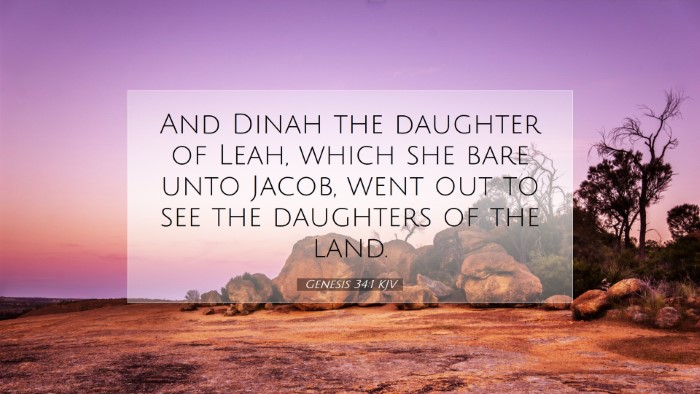Commentary on Genesis 34:1
Genesis 34:1 (KJV): "And Dinah the daughter of Leah, which she bare unto Jacob, went out to see the daughters of the land."
Introduction
This passage opens a narrative that is pivotal in the history of the patriarchs and showcases elements of family, morality, and cultural interaction. The focus on Dinah, the daughter of Leah, signals to us the importance of her story, as well as the dynamics in Jacob’s family and the surrounding culture.
Contextual Analysis
Matthew Henry provides insights into the sociocultural context of Dinah's actions. He notes that Dinah went out "to see the daughters of the land," which implies a curiosity about the Canaanite women. This venture could demonstrate youthful curiosity or a desire for acceptance within the culture, reflecting broader themes of assimilation and identity.
Character Examination
Dinah's Agency: Her decision to engage with the daughters of Shechem reflects both her youthfulness and her familial background. As the daughter of Leah, she is part of a complex family dynamic that includes rivalry, favoritism, and various cultural narratives.
Albert Barnes comments on the significance of Dinah's name, which means "judged" or "vindicated." This foreshadows the events to follow, highlighting that her actions will lead to significant consequences, both for her personally and for her family.
Cultural Implications
The act of Dinah venturing out is steeped in cultural implications. Adam Clarke notes that this action was somewhat risky given the surrounding Canaanite culture, which was steeped in moral ambiguity. This raises questions about how the presence of God’s covenant people interacts with the inhabitants of the land.
Interaction with Canaanite Society
Dinah's exploration can be seen as a metaphor for Israel's future interactions with surrounding nations. The Bible presents several instances where the children of Israel are cautioned against marrying outside their lineage, which reflects concerns about cultural dilution and loss of identity.
The Significance of Women's Roles
Henry emphasizes the importance of women in biblical narratives. Women's actions, like Dinah's, often set off profound events that shape the course of biblical history. This underscores the significance of considering women's perspectives in theological discourse.
By portraying Dinah in this moment, Genesis invites readers to explore the implications of female agency in a patriarchal society, allowing for a richer understanding of character motivations.
Foreshadowing Events
Barnes points out that Dinah's foray leads directly into a turbulent narrative involving Shechem, which foreshadows future conflicts. This moment becomes critical as it sets the parameters for violence and retribution that will unfold as Jacob's sons respond to Shechem’s actions.
Moreover, the excursion of Dinah serves as a prelude to discussions on justice and morality that permeate the scriptures, illustrating the delicate balance between cultural exploration and adherence to God’s commandments.
Theological Reflections
This passage drips with theological implications regarding God's sovereignty and the nature of sin. Clarke speaks to the idea that human actions, particularly those undertaken without the guidance of God, often lead to spirals of sin that affect multiple generations.
The morality depicted in this passage must be juxtaposed with the cultural norms of the time, compelling readers to reflect on how the Lord's commandments intersect with human behavior.
Conclusion
In summary, Genesis 34:1 serves as a rich text for reflections on identity, familial relationships, and the clash between divine command and human choice. The insights of Henry, Barnes, and Clarke elucidate the complexity of Dinah's story, establishing it as a significant narrative in understanding the lives of the patriarchs and the unfolding of God's plan through the Israelite people.
The exploration of Dinah’s actions invites pastors, students, and scholars to delve deeper into the narrative, reflecting on how contemporary readers might apply lessons from her story—one of seeking, understanding, and ultimately, the consequences that arise from crossing cultural boundaries.


